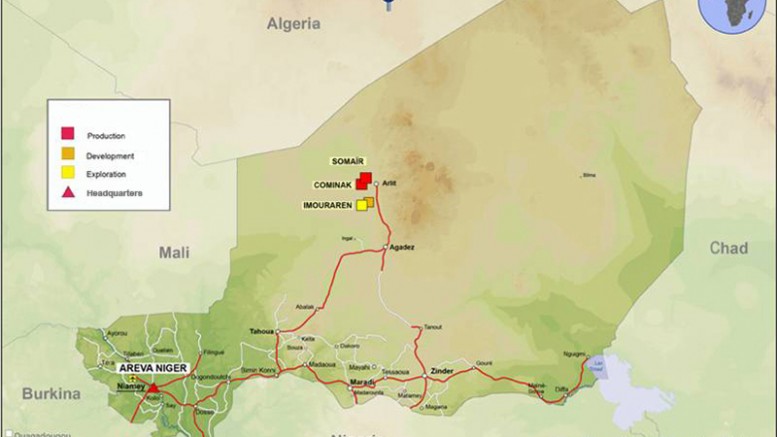The indefinite tenure of Niger’s President Mamadou Tandja has been cut short and Canadian junior miners in the country are sorting out what the implications of his removal mean for business.
In an unpopular move, Tandja changed the country’s constitution in August of last year to allow himself to remain as president for an indefinite amount of time. Now, however, a military coup – which seized the presidential palace on Feb. 18 — has interfered with his plans.
Tandja’s over-throwers are led by Col. Salou Djido, who is promising to bring elections and a new constitution to the impoverished West African nation of 15 million people.
As their first order of business the junta – which calls itself the Supreme Council for the Restoration of Democracy– has suspended the constitution and dissolved all state institutions.
It says its aim is to restore democracy and save the population from “poverty, deception and corruption”.
Early word from miners on the ground in the uranium-rich country is that people on the streets were “ecstatic” over news of the coup and it was business as usual for the miners.
Jim Gillis, president and chief executive of Island Arc Exploration (IAX-V) has received correspondences from members of his staff in the country.
Gillis says he’s been told him that the army is united and that anyone can enter and leave the country as they please.
But Gordon Davidson, VP of exploration for Bayswater Uranium (BYU-V) says the recent unrest is just the latest in a long list of obstacles that have deterred Bayswater from doing work on its permits in the country.
“We’ve not been doing work there at all,” Davidson says. “One of the issues that we encountered before the coup was that it was hard to secure contractors. We talked about getting an airborne geophysical contractor in and they told us they would fly it if [rebels on the ground] would stop shooting at them.”
Still, Davidson says the geological potential for the country is immense, and Bayswater is maintaining its claims.
He explains that the coup has actually bought the company a greater period of time to sit on the sidelines as it a disturbance like a coup will classify as force majeure, extending the period of time it can remain inactive on its permits.
But while Bayswaters’s concerns were mainly to do with Toureg rebels in the north of the country it was not immediately clear if the Toureg had any affiliation with the coup.
Given that the coup was carried out by the military, and the military has generally been at odds with Toureg, their involvement is unlikely.
What is known is that soldiers are currently holding President Mamadou Tandja after they seized control through gun battles in the capital of Niamey.
Reports out of the country say there is no longer a military presence on the streets, but that heavy artillery is positioned around the presidential palace.
Niger went through a military takeover in 1999 which saw then president, Ibrahim Bare Mainassara, assassinated. Civilian rule was restored a year later.
The 71-year-old Tandja is a former army officer himself and was voted into office in 1999 and then re-elected in 2004.
Niger is considered one of the world’s poorest countries, but Tandja had some success in luring large investment to the nation. Areva is currently in the midst of constructing a $1.5 billion uranium mine there.
But Bayswater’s Davidson says it takes the connections, the people and the clout of majors like Areva to get business done in the country.
Niger placed 106 out of 180 countries in Transparency International’s Corruption Perception Index. Countries with a higher ranking are perceived to have more transparency. Niger’s position put it ahead of Egypt and Algeria and just behind Zambia and Gabon.
Other Canadian-based miners with assets in the country include NWT Uranium (NWT-V) and Semafo (SMF-T).


Be the first to comment on "Canadian miners wait to see implications of regime change in Niger"